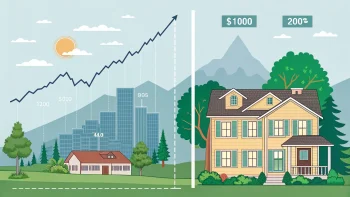Los Angeles is experiencing a severe homeowners insurance crisis, with over 800,000 homes currently lacking coverage. While insurance companies are being criticized for the shortage of policies, the root cause may be a 1988 California law known as Proposition 103.
Table of Contents
ToggleUnderstanding Proposition 103’s Impact
Proposition 103, enacted in 1988, significantly changed California’s insurance landscape. The legislation created the position of state insurance commissioner, an elected official responsible for overseeing insurance premium adjustments. The law’s primary purpose was to protect consumers from excessive insurance rates.
However, this regulatory framework has produced unintended consequences. Insurance companies must now seek approval from the commissioner before implementing any premium increases. The political nature of this elected position has led to frequent rejections of rate adjustment requests as commissioners aim to maintain voter support.
View this post on Instagram
Current State of LA’s Insurance Market
The situation has reached critical levels in Los Angeles, where approximately 806,000 homes currently lack insurance coverage. This represents a 40% higher uninsured rate compared to the national average. The numbers reflect a significant market failure that affects thousands of residents’ financial security.
Insurance companies operating as profit-driven enterprises have responded to these regulatory constraints by withdrawing from the California market. When unable to adjust premiums to match rising risks and costs, these businesses have chosen to cease operations in the region rather than operate at a loss.
The Economic Reality
The fundamental issue stems from basic business economics. Insurance providers must maintain profitable operations to remain viable. When regulatory frameworks prevent companies from adjusting their rates to reflect actual risk and cost factors, they face two options: operate at a loss or exit the market.
The mass exodus of insurance providers from the Los Angeles market demonstrates how regulatory restrictions can create market distortions that ultimately harm the very consumers they intended to protect. The current situation leaves homeowners vulnerable to financial losses, particularly in areas prone to natural disasters. But worse is that this disaster fire may not have had to be–this will bring up some sticky points that will have to be addressed.
Many of the insurance issues and cancelations are caused by the city and county not releasing the funds to clear the brush in those hills. The brush catches fire quickly, especially at that altitude, and has not been done for years. Therefore, the city and county also had their insurance canceled. This will all come out because of the loss of property, especially because of the loss of life in this California fire.
Frequently Asked Questions
Q: What is the main purpose of Proposition 103?
Proposition 103 was designed to protect California consumers from excessive insurance rates. It requires insurance companies to obtain approval from the state insurance commissioner before implementing premium increases.
Q: Why are insurance companies leaving the Los Angeles market?
Insurance companies are exiting the market because regulatory restrictions prevent them from adjusting premiums to match actual risk levels and operational costs, making it financially unfeasible to continue offering coverage in the region.
Q: How does the LA uninsured rate compare to other areas?
Los Angeles has an uninsured home rate 40% higher than the national average, with 806,000 homes currently lacking insurance coverage. The city and county did not pay to clear the highly ignitable brush from the hills–for years, adding up to this disaster. This highlights the severity of the local insurance crisis, but is that where the culpability lies, or is it due to the city and county’s lax attitude about keeping the fire danger down in the first place?

















